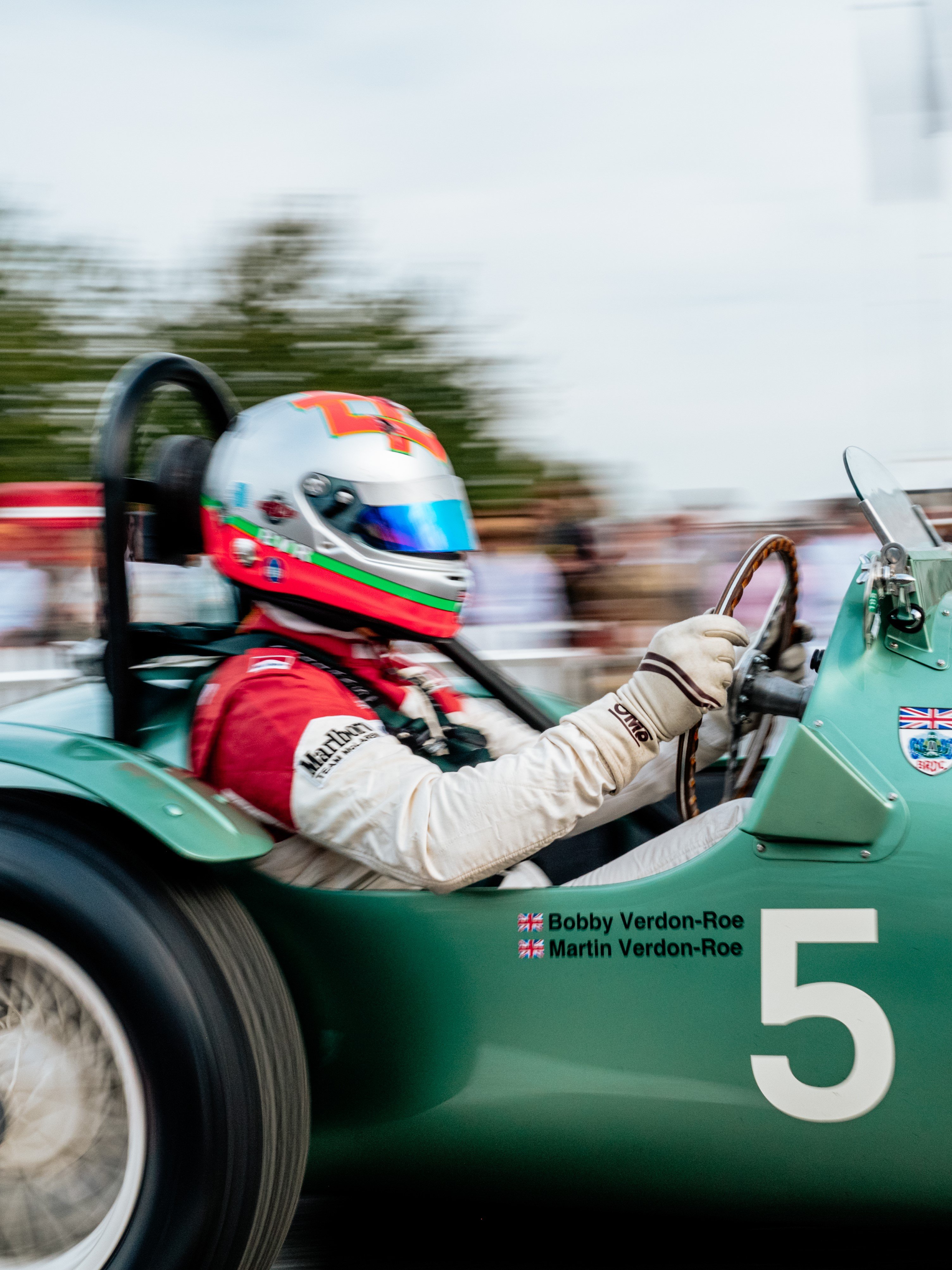Fangio’s 1957, part 3: Nürburgring 1,000km, GP of Portugal and Le Mans 24 Hours
Financial disputes between race organisers and the teams and their drivers rendered bare the Formula 1 calendar for seven weeks via the absences of the Belgian and Dutch Grands Prix. So it was sportscars all the way from late-May to July – with reigning world champion Juan Manuel Fangio again parcelling his efforts with great care.
Though fastest in practice – only two seconds shy of the F1 lap record – for the Nürburgring 1,000km in Maserati’s blockbuster 450S, he allowed agile co-driver Stirling Moss to undertake the run-and-jump start. At which point the car’s 4.5-litre V8 lived up to its reputation for being difficult to coax into life.
Moss required eight laps to recover the time lost – a task made extra-difficult by the speed and style being displayed by leader Tony Brooks in Aston Martin’s less powerful but nimbler DBR1. Once ahead, however, Moss galloped away from his Vanwall F1 team-mate – as did his left-rear wheel when a half-shaft broke on lap 11.
Maserati promptly put Fangio in the remaining 450S, but he lost ground to Brooks in the few laps that he completed before its oil tank came adrift. Two laps passed during the repair and Moss managed just two more before the problem recurred. This jack-in-the-box Englishman wasn’t finished, however. He assumed the works 3-litre 300S – but rejected it after only a lap, so diabolical was its handling. Whereupon wealthy Spanish amateur racer ‘Paco’ Godia, art lover and philanthropist, offered Moss his. More to his liking, Moss recovered five places before handing it to Fangio for a final stint that gained them another place to finish fifth.
This after the Maseratis had been encouragingly reliable during practice.
Although Moss had Fangio’s measure in two-seaters, the Argentinean remained a formidable if reluctant – he might not have started at the Nürburgring had Jean Behra been fit – force in sportscars, blending speed with smarts. On pole for June’s GP of Portugal at Lisbon’s Monsanto Park, he let the sister 300S of compatriot Carlos Menditéguy and Ferrari 860 Monza of America’s Masten Gregory, hotheads both, to set the early pace of this 185-mile race: “Once the first fever had calmed down, and their cars were showing the effects of that effort, I knew the moment had come and I passed to take the lead [after 10 laps].”

Moss in the 450S Coupe, Le Mans, 1957...
This was Fangio’s sixth victory (from eight starts) of the season to date.
Le Mans, however, was another matter: not even Moss enjoyed the 24-hour marathon, with its heavy emphasis on straight-line speed, running to a strict and conservative pre-planned regimen and bottling competitiveness in order to preserve machinery. He and Fangio had been leading in 1955 when Mercedes-Benz withdrew their 300SLR in response to the calamitous crash that had killed team-mate ‘Levegh’ and more than 80 spectators.
Now Moss had persuaded Maserati to build them a coupé version of the 450S, based on a design by British aerodynamicist Frank Costin, the man responsible for the Vanwall’s efficient teardrop shape. Farmed out to Zagato of Milan, the job was misunderstood, rushed and botched, and the resultant car, minus its full-length undertray, for example, was slower than its open-topped cousin. Fangio took one look at its cramped and stuffy cockpit and walked away.
As he had at the Nürburgring, however, he set the pace in practice in a 450S – the difference being that on this occasion he held himself in reserve, waiting to see which car was best placed before agreeing to drive. According to Motor Sport correspondent Denis Jenkinson, this was a “crafty move” and Fangio “did not weep any tears” as the red cars, Ferraris as well as Maseratis, dropped like flies in the early stages.
Even though team-mate Behra ended the opening stint in the lead – this 450S was soon to retire in co-driver André Simon’s hands – and though the works 300S, never in the hunt for victory, lasted more than seven hours before its clutch failed, Fangio didn’t budge, “but smiled blandly and looked forward to the next Grand Prix.”
Photography courtesy of LAT Images
juan manuel fangio
Maserati




